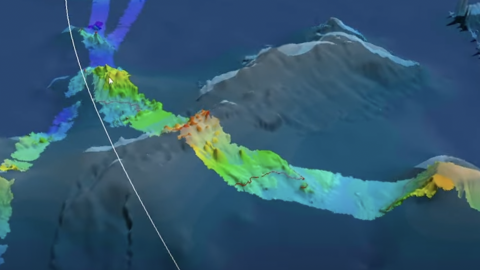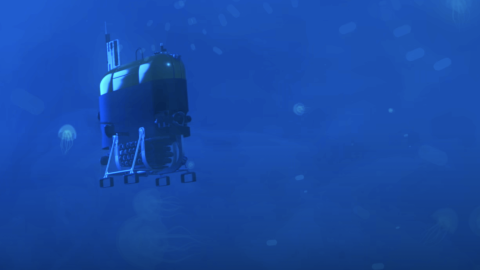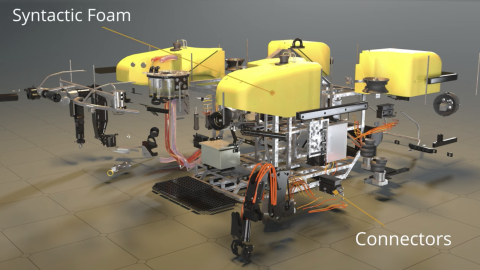From Ship to Shore: Processing Biological Samples
Technology aboard E/V Nautilus allows our scientists to collect organisms and biological samples from the deepest parts of the ocean, bring them back aboard Nautilus, and preserve them for scientific study now and in the future.
A wide variety of biological samples are collected by Nautilus, including sponges, corals, invertebrates, and gastropods. A pair of manipulator arms located on ROV Hercules allows the pilot to remotely collect biological samples with precise dexterity. For more delicate samples, specialized grippers replace typical manipulator jaws to ensure the safe and effective collection of delicate specimens. For the smallest, most delicate, or flexible specimens, the “slurp” hose or a scoop tool is used to ensure that the sample is collected and handled with the proper care. Once collected, specimens are placed into watertight sealed compartments called “bioboxes” located on Hercules that maintain water temperature and pressure.
From the googly-eyed squid to the mysterious purple orb, many of the organisms spotted by scientists aboard Nautilus are exciting and new, yet others may take years to describe, characterize, and identify. That’s why we are meticulous in the way that we collect, log and label our specimens.
Once a dive is completed, Hercules returns to Nautilus for recovery so our science team can remove biological samples from the bioboxes and start processing samples, carefully labeling and tracking throughout the process to ensure each sample can be traced from the start of its journey on the seafloor to its final destination onshore.
Biological samples are then shipped to a repository, the Harvard Museum of Comparative Zoology, so that any scientist can request the sample for more detailed analyses. Once an expedition ends, collected data and specimens live on in the laboratories of researchers, the archives of data centers, and the repositories of institutions for the use of scientists around the world. To share information about initial results, Ocean Exploration Trust works with expedition teams to write summaries that are published annually in the Oceanography Society Magazine supplement: New Frontiers in Ocean Exploration.



